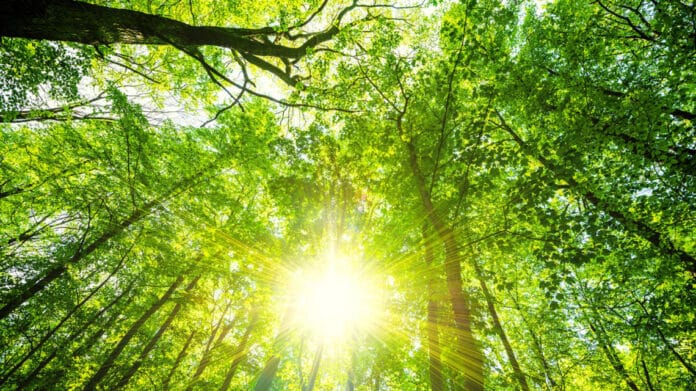At this moment, wildlife throughout Dorset is gearing up for the impending winter season.
Hazel dormice are diligently building their reserves with a diet rich in nuts, seeds, and insects as they prepare for their long hibernation. However, a pressing concern remains: will they find a secure haven to spend the winter?
Brown long-eared bats, possibly already in the throes of their hibernation, rely heavily on mature trees for nesting within Dorset. Yet, the looming threats of ash dieback and climate change cast shadows on their future prospects.
Meanwhile, nesting birds such as the enchanting firecrest will soon be joined by migratory birds from the north, all searching for sustenance and shelter within the dwindling remnants of our woodlands.
These invaluable species, along with numerous others, face dire consequences if we allow Dorset’s woodlands to wither away and fall into disrepair. But united, we have the power to prevent such a fate.
Hazel dormice prefer the nurturing environment created by coppicing and the establishment of woodland glades. This crucial habitat management work is diligently carried out by our dedicated wardens at nature reserves across the county, including Bracketts Coppice, Ashley Wood, and Girdlers Coppice.
Moreover, they will have access to dormouse nesting boxes and tubes strategically placed in suitable nature reserves, providing both sanctuary and a means of population monitoring.
By expanding our existing woodlands through natural regeneration, tree planting, and land acquisition, we can offer greater biodiversity and more living space for wildlife. This, in turn, benefits bats, firecrests, and all our woodland bird species. Together, we can ensure a brighter future for Dorset’s precious woodlands and their inhabitants.
Some of the wildlife in Dorset:
- Birds: Dorset is a haven for birdwatchers, with various species of resident and migratory birds. Species like the peregrine falcon, little egret, and kingfisher can be spotted along the coast and in wetland areas.
- Mammals: Dorset is home to a variety of mammals, including badgers, foxes, deer (such as roe and fallow deer), and hedgehogs. The rare and elusive hazel dormouse is also found in some areas.
- Insects: The county boasts a diverse range of butterflies, moths, and other insects. Species like the Adonis blue butterfly and the silver-washed fritillary are found in Dorset.
- Marine Life: The waters off the Dorset coast support a wealth of marine life, including seals, dolphins, and various species of fish. Durlston Bay is known for its diverse marine ecosystems.
- Reptiles and Amphibians: Common reptiles in Dorset include adders, grass snakes, and common lizards. Amphibians like common frogs and smooth newts can also be found.
- Plants and Flora: The county features a rich variety of plant species, including heathland plants like heather and gorse, as well as woodlands with bluebells, wild garlic, and various orchids.
- Marine and Coastal Birds: The coastal areas are important for various seabirds, such as gulls, cormorants, and oystercatchers. Additionally, migrating waders and waterfowl visit the shores during different seasons.
- Marine Life: Dorset’s waters support marine creatures like seahorses, cuttlefish, and a variety of fish species. The Jurassic Coast is renowned for its fossil finds, providing insight into ancient marine life.
- Otters: These elusive semi-aquatic mammals can be spotted in Dorset’s rivers and wetlands.
- Bats: Multiple species of bats inhabit the woodlands and caves of Dorset, including the brown long-eared bat and the pipistrelle bat.
If you would like your interests… published, submit via https://dorseteye.com/submit-a-report/
Join us in helping to bring reality and decency back by SUBSCRIBING to our Youtube channel: https://www.youtube.com/channel/UCQ1Ll1ylCg8U19AhNl-NoTg SUPPORTING US where you can: Award Winning Independent Citizen Media Needs Your Help. PLEASE SUPPORT US FOR JUST £2 A MONTH https://dorseteye.com/donate/







